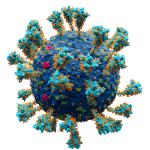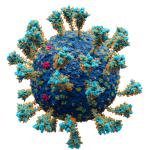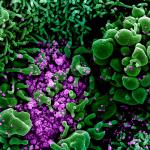I spoke with John Batchelor on-air recently about the important topic of the ongoing measles outbreak in the U.S.
COVID
By now, virtually everyone knows many people who have had COVID.
During the COVID pandemic, federal officials pressured social media platforms to censor information they deemed a threat to public health.
From the onset of the COVID-19 pandemic, researchers have been engaged in forecasting the potential economic and human costs associated with an uncontrolled large-scale pandemic, as well as the corresponding benefits that could be derived from an
Should the federal government pressure social media companies to censor scientific “disinformation”?
We have learned a lot about the SARS-CoV-2 virus during the four years of the COVID-19 pandemic. Because the virus replicates its RNA and mutates in every infection, its spike proteins keep changing.
Texas’ political leaders recently have made some inconceivably irresponsible policy decisions.
The Wall Street Journal published a news article on January 5, “Why It Feels Like Everyone You Know Is Getting COVID-19,” which contained several worrisome observations.












